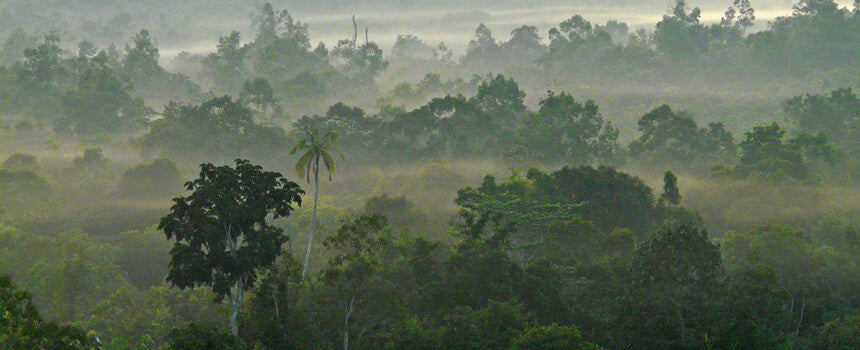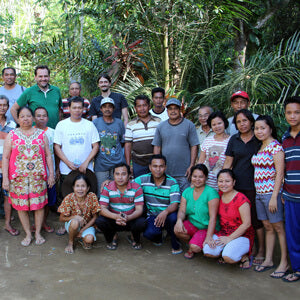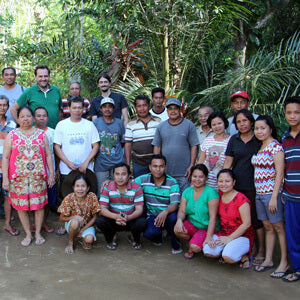Day 10
11 m² of rainforest will be reforested on Borneo
 More than just reforestation - a future for people and nature
More than just reforestation - a future for people and nature


1 million trees against poverty and deforestation in Borneo

need
An alternative form of land use that brings income to farmers in Borneo while protecting the rainforest.
activity
Fairventures Worldwide, together with a local NGO, supports farmers and tree nurseries in raising seedlings and establishing sustainable timber plantations.
Measurable performance
4,500 seedlings will be distributed and planted, 40 farmers will be employed in the project and 6.6 hectares of rainforest will be reforested.
Result
40 farmers and tree nurseries generate income independently of the palm oil industry, for example. A sustainable economy is created in harmony with nature.
Systemically relevant impact
The alternative form of land use is becoming established, farmers have sustainable sources of income and a long-term contribution to climate protection is being made.
background


The good deed
AboutIndonesia

Jakarta
Capital city
249 865 600
Population
3 534 USD
Gross domestic product
per capita per year
108
Human Development Index
(Human Development Index)



